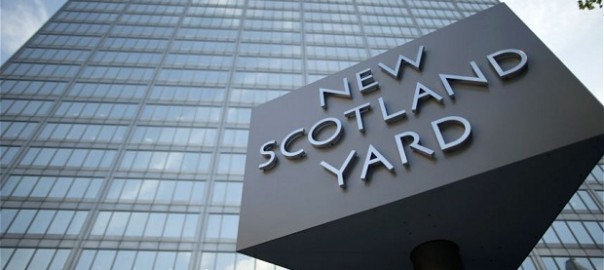Millions spent from the public purse, 80 officers taken off the street to dedicate their time solely to the investigation and numerous cases and retrials dropped after 3 years’ worth of investigations. Looking back, was it all worth it?
It sounds like it could be the script to a blockbuster film; well respected journalists asleep at home with their spouses and children awoken to numerous police officers banging at their door. Their houses searched, personal belongings rummaged through and countless items seized. Wives and children terrified and in tears seeing their loved ones removed by the police to be held in a cell awaiting questioning. Journalists faced hours of questioning on numerous occasions and were then were left on police bail for months (years in some instances) to finally be prosecuted under the almost unheard of ancient common law offence of Misconduct in Public Office (MIPO). An offence that can only be committed by a public official and therefore the only possibility of using against journalists was to bolt it onto conspiracy charges.
It does not sound like modern day England but this is the reality that many journalists faced under the Operation Elveden Investigation.
What is Operation Elveden?
Operation Elveden was an investigation into allegations of journalists making inappropriate payments to public officials for information. Public officials were prosecuted under the common law offence of MIPO whilst journalists were prosecuted for aiding and abetting such misconduct or conspiracy to commit misconduct in public office.
This investigation is not to be confused with other well-known operations which were led by Deputy Assistant Commissioner Sue Akers, Head of Organised Crime & Criminal Networks within the Specialist Crime Directorate at a similar time. These include Operation Weeting which was an investigation into allegations of phone hacking at the News of the World and Operation Tuleta which was an investigation into alleged computer hacking at the News of the World.
Operation Elveden is an investigation into a course of conduct which was prevalent throughout the industry and a way of obtaining stories, whilst the latter two are confined to rogue reporters who acted in an unacceptable way.
Headline Figures
It is reported that the prosecution of Public Officials and Journalists under Operation Elveden has cost the tax payer over £30 million. This process took place over 4 years and reportedly had 80 police officers taken off the street to dedicate their time solely to the investigation and prosecution. Police made 87 arrests and interviewed 56 suspects under caution. In total 29 journalists and 26 public officials were charged.
Uncertainty of the Offence
The charge of MIPO dates back to the 17th century, yet despite the length of time it has been in existence it has been seldom used and therefore limited case law exists to assist in the interpretation of the offence.
Prior to the Elveden trials, the most recent reference to the elements of the offence was set out in Attorney General’s Reference (No 3 of 2003) [2004] 2 Cr App R 23, [2005] QB 73. In this case the Court of Appeal (COA) set out four elements of the offence of MIPO:
- A public officer acting as such
- Wilfully neglects to perform his duty and or wilfully misconducted himself
- To such a degree as to amount to an abuse of the public’s trust in the office holder
- Without reasonable cause or justification
The offence of MIPO was largely if not completely unknown to the journalists who faced trial until these investigations commenced. It did not feature in the journalists’ handbooks or leading legal textbooks that they studied whilst training. It also did not form any part of the in-house training at their newspapers.
Evidence was given on numerous occasions that paying sources, including public officials, was the norm and was authorised at the highest levels within the papers. Evidence was provided that this was the case throughout much of Fleet Street. Professor of journalism at City University and columnist for The Guardian, Roy Greenslade, frequently supported this factual position throughout the investigation and prosecutions, in his columns in the Evening Standard and The Guardian.
Court of Appeal Ruling on MIPO
The confusion surrounding the elements of the MIPO offence led to two successful appeals against conviction. Lucy Panton and Ryan Sabey, who previously worked for the News of the World, both had their convictions overturned.
On 26 March 2015 the Lord Chief Justice, Mr Justice Cranston and Mr Justice Davis found that HHJ Wide erred in his direction to the jury by not being explicit enough in explaining how “serious” the misconduct had to be to amount to criminality.
In determining guilt HHJ Wide had confirmed that there were four elements to consider, as set out in Attorney General’s Reference (No 3 of 2003) outlined above. HHJ Wide said the third aspect to consider was whether the jury were sure that the prison officer committed misconduct to “such a degree as to amount to an abuse of the public’s trust in the officer holder”. The COA ruled that this direction was not transparent enough. It was ruled that the jury should have been told that they were required to carefully consider the threshold between misconduct in public office and actual criminal behaviour.
Ms Panton’s verdict was deemed to be unsafe and the conviction was quashed. Mr Sabey was given liberty to appeal on the same grounds and was successful at a future COA hearing.
The COA ruling on the element of ‘seriousness’ led to an urgent review and resulted in the DPP announcing that 9 out of 12 journalists awaiting trial would not be prosecuted. The 3 remaining journalists faced trial in May and October 2015. Chris Pharo and Jamie Pyatt were acquitted after 12 hours of deliberation. Anthony France was convicted in a separate trial and is currently in the process of appealing his conviction.
The ruling also led to revised guidance on MIPO being issued by the CPS.
Issues with the Decision to prosecute
Many have asked, was it in the public interest to spend millions prosecuting journalists for something that was deemed to be widespread in the industry and had been occurring for decades. Juries certainly did not think so. Out of the 29 journalists who were charged only three were found guilty after a jury trial. Two of these convictions were overturned by the COA and one is currently appealing his conviction. One further journalist, Dan Evans, pleaded guilty in the early stages of his case.
Thirteen journalists have been declared not guilty after facing the ordeal of being suspended from work, left on bail for months, preparing for and awaiting trial, then enduring the lengthy and highly stressful trial process. The impact on their reputation, career and also on relationships with friends and family has been immeasurable.
A further issue with the investigation and decision to prosecute journalists was the method via which the police obtained evidence and the ongoing disclosure process. After denying that phone hacking occurred at the now defunct News of the World and obstructing the investigation, News Corporation approached the police with the suggestion that a Management Standards Committee (MSC) was set up to monitor the disclosure process. The police agreed to this in what may appear to many to be an unorthodox way of proceeding given the seriousness of the hacking allegations. The MSC assessed material from News Corporation papers and determined what documentation was relevant and which material should be handed across to the prosecution team.
This method of disclosure meant that News Corporation could largely control the disclosure process and make decisions on what was relevant particularly in relation to evidence pertaining to more senior officials within News International. Evidence was given throughout the Elveden trials that the payment of sources, including public officials, went at least very high up the chain of command. In fact, disclosure requests were made in the first trial of Chris Pharo and others for material highlighting this. As a result of this request, material was forthcoming at a late stage which threw into question the way that the disclosure process had been managed by the MSC and the independence and thoroughness of the police investigation.
A final issue with the disclosure process that the defendant journalists were rightly concerned was that the MSC had provided the police with privileged journalistic material without the knowledge or consent of the individual journalists nor the sources. This compromised numerous confidential journalistic sources, the protection of which is one of the first rules of journalism.
Who is to blame if any?
Some would think that this investigation cried out for a corporate prosecution of the papers, given the wild scale occurrence of payments to public officials and the evidence suggesting that the method of obtaining stories was known and authorised by senior members of the papers. Yet despite an investigation, nothing has been done in respect of this.
Roy Greenslade was quoted in the Guardian as saying that fault lies with “the corporate culture, and that the people it [Operation Elveden] arrested were not responsible for that culture”. It appears that the method of investigation led to a case of ‘low hanging fruit’ being sacrificed whilst individuals higher up the chain remained safe.
As far back as 2003 it was reported that very senior members of the paper were aware that payments to public officials for information were being made. Rebekah Brooks (who was known by her maiden name ‘Wade’ at this time) was the editor of the Sun in 2003. When giving evidence to a committee of MPs she admitted paying police officers for information. Fast forward to 2012, during the Leveson Inquiry, Rupert Murdoch, owner of News Corporation was reported saying that there was a “culture of illegal payments”. Despite these comments, the police appeared unable to make a case against the cooperate entities concerned and instead pressed on against the “low hanging fruit” that may have made headlines but risked scapegoating rather than obtaining the actual facts that would have been so important to the democratic process and the issue of the free press generally.
Was a criminal prosecution necessary?
The failure in securing convictions for journalists prosecuted in this matter would suggest that this prosecution was misguided and unnecessary. Perhaps alternative penalties could have been instigated such as cautions or public warnings to both journalists and the papers who encouraged this course of conduct. A more proportionate response to the conduct of the journalists would unquestionably have saved the tax payers millions and would have possibly better maintained the democratic safeguard of the freedom of the press.



